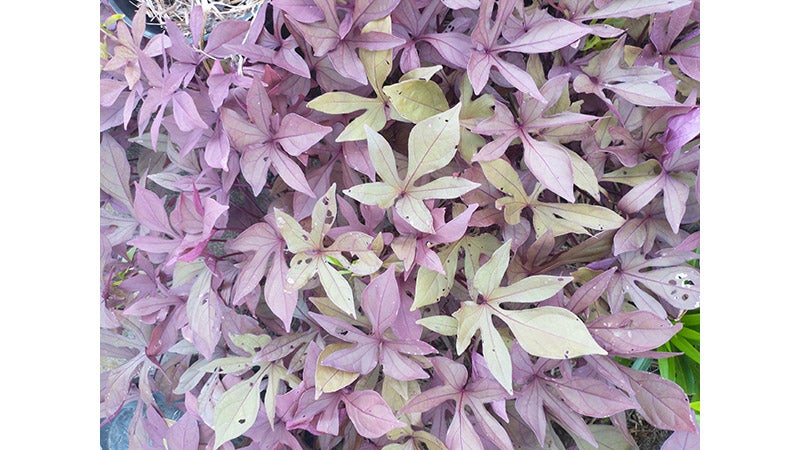How to select ground covers
Published 6:00 am Wednesday, September 22, 2021

- A sweet potato vine is among the plants that can be temporary ground cover in our area. (Photo by Mark Carroll)
|
Getting your Trinity Audio player ready...
|
BY MARK CARROLL
Ground covers are low-growing plants that spread quickly to form a dense cover. You may wonder, “why would I want that?” There could be many reasons, but you probably have grass, yes? Grass is a ground cover, and when maintained, it looks nice, so there is a good reason — because it looks good. Some ground covers, like the sweet potato vine above, are also edible. The variety shown does not grow potatoes, but the leaves are tasty, and the beautiful mix of colors along with their coverage density makes it one of my favorites. They say nature abhors a vacuum. Dense covers can fill in barren areas before weeds get established. Since sweet potato vine is susceptible to freezing in our hardiness zone, it can be considered temporary ground cover until more permanent choices can be made.
Grass is the most common ground cover, as it holds up well to being walked on and helps prevent soil erosion, but grass is not suited to all locations. In other locations where grass is difficult to grow or maintain, other ground covers can provide a uniform or, at least, planned appearance. The Virginia Tech Publication Selecting Landscape Plants: Ground Covers VCE426_609 has extensive information about how to select the right plant for the right location and purpose, some tips on how to plant ground covers for success, an extensive list of recommended ground covers and invasive species you may want to avoid.
Generally speaking, invasive refers to aggressively growing plants that are not native to our location, so they have little pest pressure or natural diseases and can overtake an area. English ivy is a good example of an invasive ground cover, and while I admittedly am not a big fan of Virginia creeper, it is native and easier to control. I like using aggressively growing plants like mint or creeper to out-compete poison ivy. Most ground covers are easily removed by pulling them from the roots, mowing them repeatedly, or out-competing them.
As I alluded to earlier, if you do not select a ground cover or if you select an inappropriate one, nature will be happy to do it for you, but you may not like what nature determines is best. I suggest looking for a native ground cover, or plant some herbs. There is no reason why your ground cover can’t smell nice or be used in a cup of tea.





